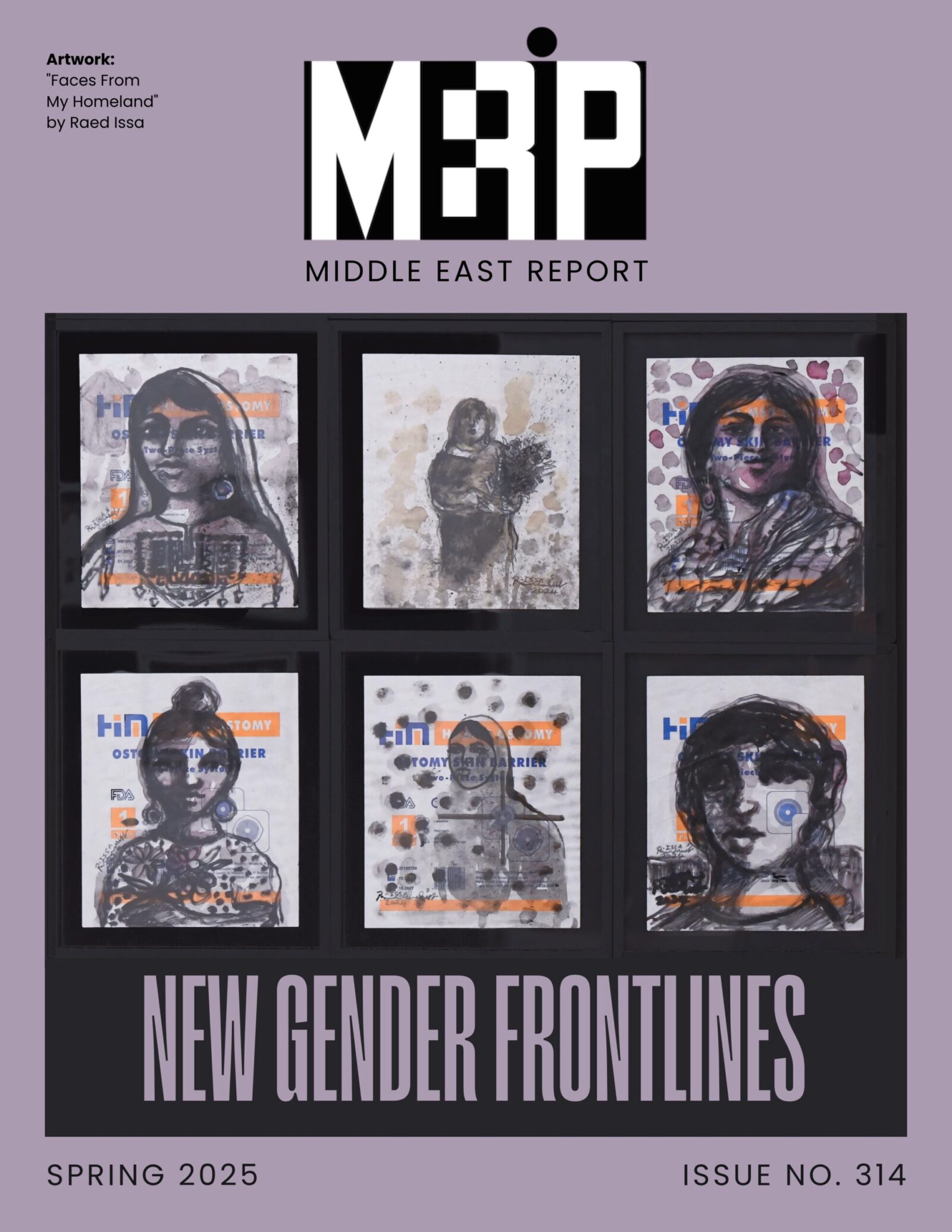IN THIS ISSUE:
The Breakdown of the GCC Initiative
On September 21, 2014, fighters of Ansar Allah, loyal to the Houthi movement based in the northern highlands of Sa‘ada, conquered Yemen’s capital. Militants occupied the home of 2011 Nobel Peace Prize winner Tawakkul Karman, a leader of the 2011 uprising against the regime of President ‘Ali ‘Abdallah Salih and a member of the Islamist party Islah. When the young men tweeted photos of themselves sprawling on her flowery bedspread with automatic weapons and bags of qat littered around them, the Houthi fighters conveyed a triumphal logic of coercive power, here sexualized for maximum impact. They later apologized, saying that the intent was to “guard” the Nobel laureate’s home.
From the Editor (Winter 2014)
Midway through Barack Obama’s second term as president, there are two Establishment-approved metanarratives about his foreign policy. One, emanating mainly from the right, but resonating with several liberal internationalists, holds that Obama is unequal to the task of running an empire. The president, pundits repeat, is a “reluctant warrior” who declines to intervene abroad with the alacrity becoming his station. The other, quieter line of argument posits that Obama is the consummate realist, a man who avoids foreign entanglements unless or until they impinge directly upon vital US interests.
Editor’s Picks (Fall 2014)
Amer, Sahar. What Is Veiling? (Chapel Hill, NC: University of North Carolina Press, 2014).
Baron, Beth. The Orphan Scandal: Christian Missionaries and the Rise of the Muslim Brotherhood (Stanford, CA: Stanford University Press, 2014).
Brand, Laurie A. Official Stories: Politics and National Narratives in Algeria and Egypt (Stanford, CA: Stanford University Press, 2014).
Cole, Juan. The New Arabs: How the Millennial Generation Is Changing the Middle East (New York: Simon & Schuster, 2014).
Evrard, Amy Young. The Moroccan Women’s Rights Movement (Syracuse, NY: Syracuse University Press, 2014).
Mahsa Shekarloo
Mahsa Shekarloo (1970-2014), Iranian feminist, human rights advocate and MERIP contributor, lost her two-year struggle against lymphoma on September 5. She was laid to rest in Oakland, California, surrounded by numerous friends and her loving family, including her son Borna, 5, and her husband Sohrab Mahdavi, editor of the Tehran Avenue website, and also a MERIP contributor and prominent activist.
CURRENT ANALYSIS
Catastrophe and Consequence
What is happening in Iraq is a catastrophe, but not a sudden one. The violence in Iraq has been worsening steadily over the last few years. And more to the point, today’s crisis is the consequence of failed policies and failed politics — national, regional and international — years and even decades in the making.
No understanding of today’s Iraq is complete without the background of the Iran-Iraq war in the 1980s, the 1990 Iraqi invasion of Kuwait and ensuing Gulf war, and the 13 years of UN economic sanctions, all of which set the stage for the additional disasters that would befall Iraq with the US-led invasion of 2003.
Petraeus’ Real Failure
On the sidelines of the catastrophic failure of the Iraqi army to hold back the militias of the Islamic State in Iraq and the Levant (or ISIS, as it is usually known), and the fall of Mosul to that group, a debate is taking place in the United States about whether this turn of events is yet another black mark in the massive ledger of retired Gen. David Petraeus. As Anne Barnard of the New York Times tweeted, “Remember the ‘Mosul miracle’ under Petraeus?”
Sisiphus
Over three days in late May, ‘Abd al-Fattah al-Sisi, the retired field marshal and former head of military intelligence, was elected president of Egypt with 96 percent of the vote. This tally was far higher than the 51.34 percent recorded in 2012 by the man Sisi helped to depose, Muhammad Mursi, and higher than the 88.6 percent racked up by Husni Mubarak in the rigged contest of 2005. Since the only other candidate, Hamdin Sabbahi, scarcely disagreed with Sisi on matters of policy during the campaign, a Sisi victory was a foregone conclusion, even if the margin was not.
LATEST ISSUES
FEATURED PRIMER

Primer: Palestine-Israel
Read the newest iteration of MERIP’s Palestine primer. Published in March 2025, and updated to reflect developments in the ten years since our previous primer, it provides an overview of key actors, organizations, historic events, political developments and diplomatic initiatives that have shaped the status and fate of Palestinians and the State of Israel from the late nineteenth century to the present.


